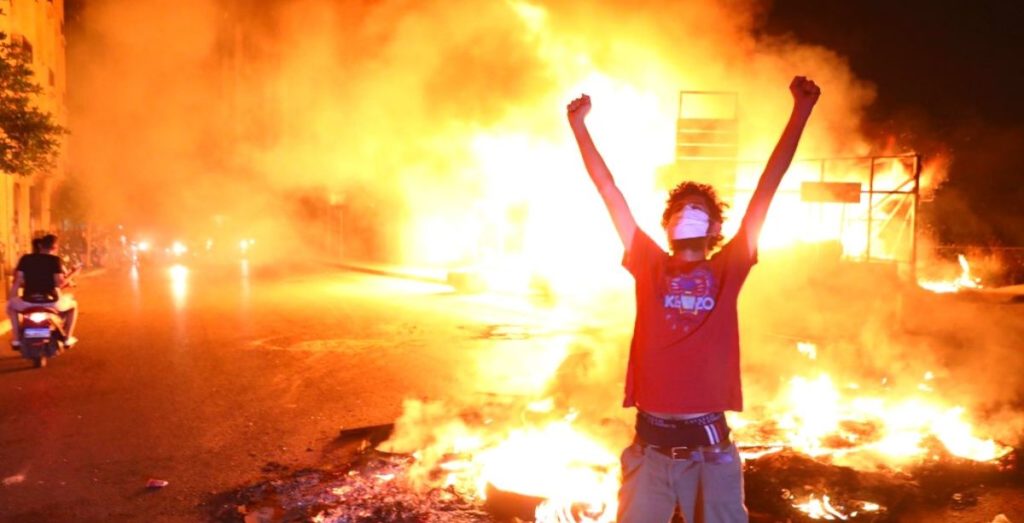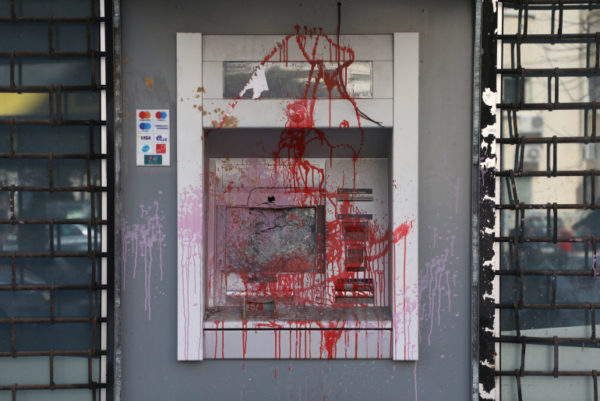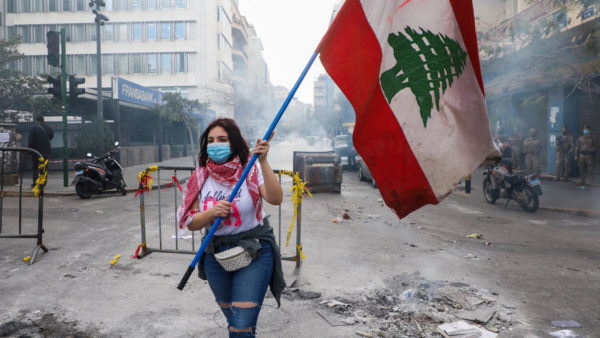A UN report has criticised Lebanon’s central bank and banking sector for what it claims are “human rights violations” from their alleged role in one of the world’s worst economic and financial crises.
The report, published on Wednesday by the UN’s special rapporteur on extreme poverty and human rights, lambasted Lebanon’s government but singled out the Banque du Liban and Lebanon’s now largely insolvent banks for particular blame.

“The Lebanese state, including its central bank, is responsible for human rights violations, including the unnecessary immiseration of the population that have resulted from this man-made crisis,” the report said.
“The economic crisis was entirely avoidable; indeed, it was manufactured by failed government policies. The country has a political establishment plagued with conflicts of interest with a banking sector and a central bank (Banque du Liban) that are largely unaccountable,” it added.
The highly critical report, which details Lebanon’s rapid decline, said the country’s power brokers “wilfully ignored” alarm bells that had been sounded by financial experts for years. It also added that Lebanon was a highly unequal society even before 2019, with “appalling levels of wealth concentration at the top; tax policies that favour evasion and benefit the wealthy; chronically neglected public education and healthcare services; an inadequate social protection system; and a failed electricity sector”.

UN special rapporteur Olivier de Schutter said after meeting ministers, the central bank governor and prime minister Najib Mikati he was struck “by the conviction they had that the country would always be rescued by the international community”.
As a result, he added, “they would never have to account for the failure to take action to protect the population from the effects of the crisis”. The Banque du Liban did not immediately respond to a request for comment. The report said the government was invited to review a draft before publication but did not attempt to refute the allegations it contained.
The central bank and its governor Riad Salamé, who is the focus of several domestic and international investigations, have repeatedly denied any wrongdoing.
Lebanon has been in freefall for more than two years, crushed by a crisis so severe that the World Bank has said it could be one of the world’s worst in 150 years. In that time, its currency has lost more than 90 per cent of its value and, according to another UN body, at least 80 per cent of its population has been pushed into poverty.
The country will hold general elections this Sunday, with the new government facing the task of implementing economic reforms demanded by the international community to unlock billions of dollars in loans and aid. Gross domestic product shrank by 10.5 per cent to $21.8bn in 2021, according to World Bank figures, following a 21.4 per cent contraction the previous year. Such a severe economic depression was typically “associated with conflicts or wars”, the World Bank said last year. But the roots of Lebanon’s crisis were more mundane, caused by years of excessive spending by successive governments that had left the country deeply in debt.
This was compounded by political dysfunction and unsustainable monetary policies — which Salamé called “financial engineering” — that began to crumble at the end of 2019, leaving the banks — which had 70 per cent of their assets, or $110bn, locked up in the central bank — mostly insolvent. Since the banking sector shutdown in 2019, Lebanon’s parliament has repeatedly failed to pass a capital controls law. Banks have instead severely limited withdrawals to try to stem the haemorrhage of hard currency. The report also highlighted the central bank’s lack of transparency in its reporting practices and the disproportionately high interest rates offered to commercial banks and wealthy depositors in the lead up to the crisis, as well as the maintaining of multiple exchange rates to the detriment of ordinary Lebanese people. “
The [central bank] is an independent institution but, as an organ of the state, it is bound by its international human rights obligations. Its actions have brought the Lebanese state into clear contravention of its international obligations, including the obligation to guarantee an adequate standard of living to its population,” the report said.
FINANCIAL TIMES


Leave a Reply
You must be logged in to post a comment.